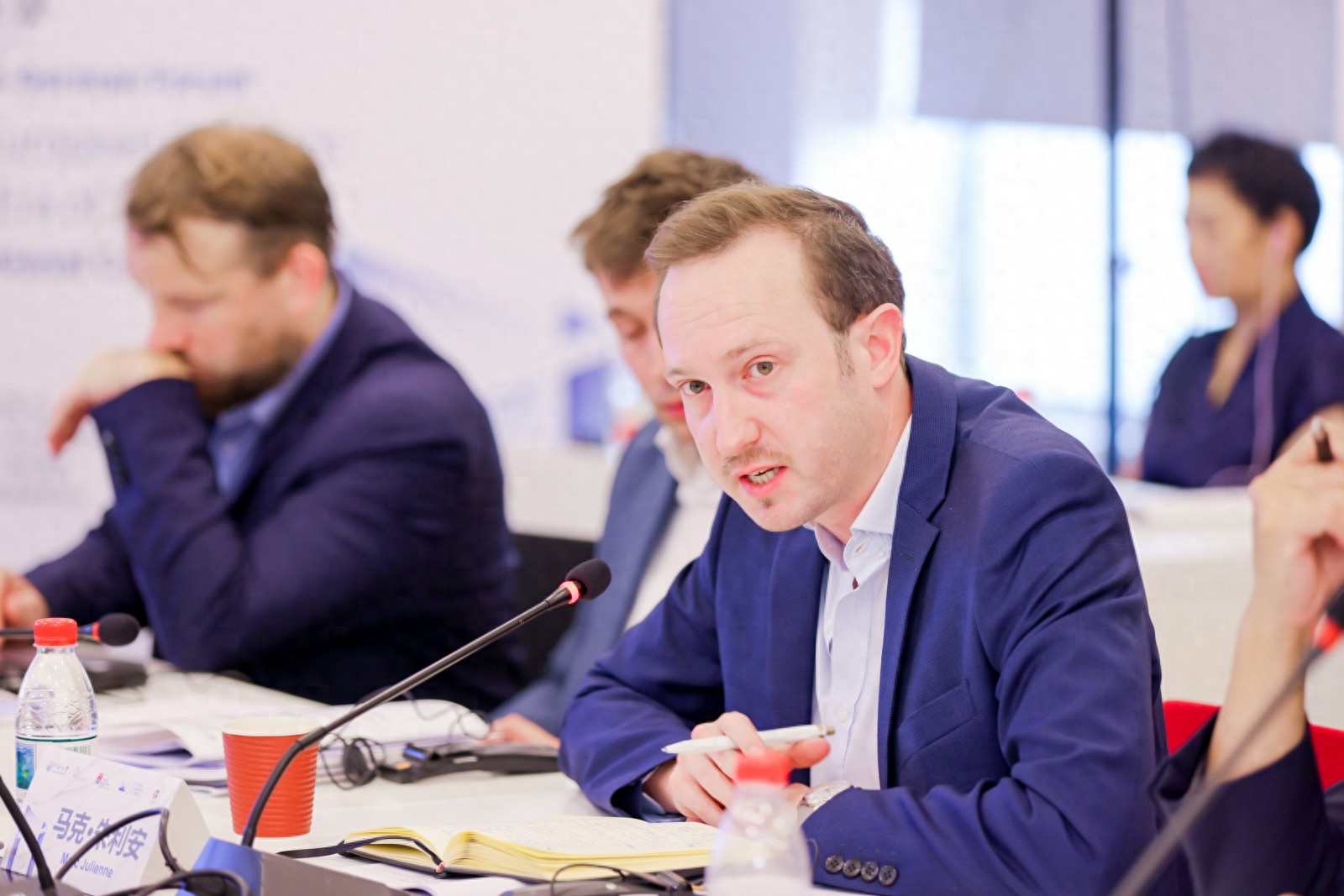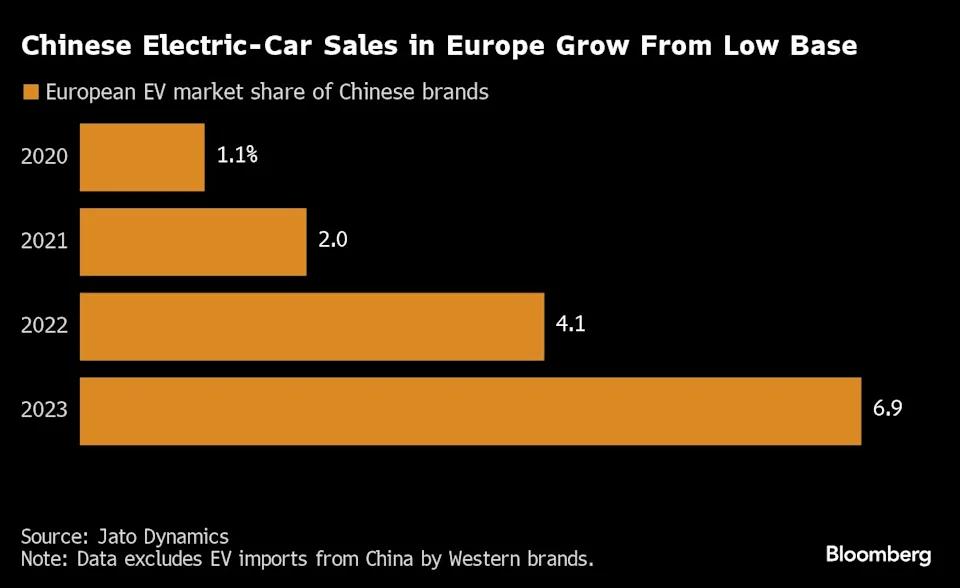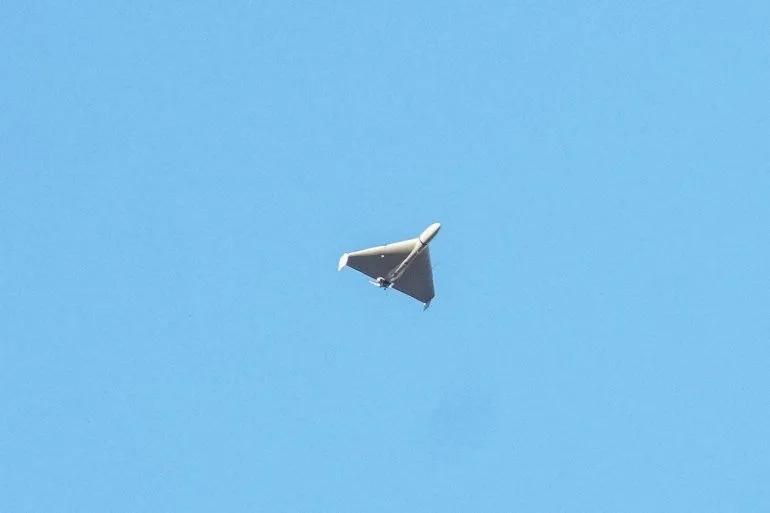Editor's Note: Since September, drone incidents have continued to escalate in Europe. Denmark and Germany have reported the discovery of drones within their respective countries, while NATO has stated that it will upgrade its missions in the Baltic region to respond to drone "invasions." This has further strained relations between the West and Russia. In addition, the current deadlock in the Ukraine-Russia peace negotiations has left future uncertainties still present.
On September 26-27, 2025, the 13th China-Germany Forum was held at Tongji University in Shanghai, hosted by the German Research Center of Tongji University, the China-Germany Cultural Exchange Research Center, the Adenauer Foundation Shanghai Office, and the Global Research Center of the University of Bonn. Coinciding with the 50th anniversary of Sino-European diplomatic relations, Chinese and European scholars engaged in dialogue and discussion on "Sino-European Relations under the Background of Trump 2.0."
Mark Julian, Director of the Asia Research Center at the Institute of International Relations in France, delivered a speech at the conference. He emphasized that although both China and Europe face common external pressures under the context of Trump's return to the stage, their relationship has not moved closer as expected, but instead has fallen into a "chicken or egg" interaction dilemma due to their own internal challenges—such as China's economic structure and Europe's industrial adjustments and security concerns. Constructive cooperation is urgently needed to stabilize the future.
After the meeting, Observers.com conducted an interview with Mark Julian on site. He elaborated on his understanding of Sino-European relations and his views on the current situation.
Observers.com has compiled the content of Mark Julian's speech at this year's China-Germany Forum and his conversation with Observers.com for readers' reference and study. The article represents the author's personal views only.

Mark Julian's Speech
Thank you very much, moderator, and thank you for inviting me. I am actually visiting Shanghai for the first time and coming to Tongji University for the first time. I am very happy to be back in China after many years to engage in exchanges. Thank you very much.
Although there are many challenges and difficulties in Sino-European relations today, Europe and China are still very important partners for each other. We need constructive ideas to ensure long-term and stable cooperation. We all know that the Trump 2.0 era has brought us many troubles and challenges. I would like to talk about some of the challenges China currently faces, and then discuss the situation in Europe.
China is still highly dependent on exports, and there are a series of challenges such as national debt and employment that need to be addressed domestically. The tariff war initiated by Trump has had a significant negative impact on China's overall economy and exports. Therefore, despite China's large economic scale, the challenges it faces are very severe. Hence, the importance of Sino-European economic cooperation is more significant than ever before.
At the same time, we also see that Europe is trying to restructure its relationship with China. European industries need a new round of adjustment, and social stability and political stability are also important goals for Europe today because we are facing multiple threats.
In terms of social stability and political issues, we cannot make any compromises. As everyone knows, the largest industry in Europe is the automotive industry. However, with the gradual overseas expansion of China's automotive industry, many European car companies are continuously losing jobs, which has had a very significant impact on us.

The share of Chinese electric vehicles in Europe is increasing year by year
Additionally, the situation in the Ukraine war is well known to everyone. Europeans pay great attention to this issue. It poses a major threat to the EU. In recent days and weeks, the incident of Russian fighter jets entering EU airspace has directly posed a huge threat to the EU. We all know that Putin must have "some intentions" towards Europe, which are a series of problems and challenges currently faced by China and Europe together.
Based on my observation, I would like to honestly discuss an issue with you: As I analyzed earlier, you should understand why there are so many intense debates in Sino-European relations today. There is still potential for deepening cooperation between China and Europe because China and Europe can jointly address a series of challenges brought by the United States, especially the high tariffs, which have made both the EU and China victims of its policies.
Although we all have this understanding, the Sino-European relationship has not become closer, but rather has seen more conflicts and tensions. After Trump returned in 2025, many issues between China and Europe remain unresolved. I understand that Europe remains an important trade and investment partner for China. China's restrictions on rare earth exports mainly target the United States, but they have also had a negative impact on European industries, thus causing unintended harm to Europe. Today, European industries are full of anxiety, believing that China's current industrial policies may pose a major threat to European industries.
Looking ahead, people are also full of worries. 2025 is not easy for anyone. The return of Trump to the American political arena brings huge impacts. But we also see that this year is an important year, the 50th anniversary of Sino-European diplomatic relations.
Here, I sincerely hope that China and Europe can strengthen cooperation and work together to solve these problems. Thank you all!
On-site Dialogue
Observer: You mentioned in your speech that the significance of Sino-European economic and trade cooperation is very important at the moment, but Europe also has its own concerns. Could you please elaborate? How do you view Sino-European relations under the Trump 2.0 era?
Mark Julian: Yes, I would like to say that before Trump returned to the White House, many Europeans, including myself, expected that Donald Trump's return would promote closer cooperation between Europe and China.
However, a few months after Trump returned, I realized that this did not happen. On the contrary, I think Sino-European relations may have become more tense and conflict-prone. This result may be counterintuitive for many people, but it is logical. I still remember that when Trump was first elected president in 2017, China and Europe reached a "handshake truce," but this scene has not been repeated today.
I personally believe that there are still significant differences in how China and Europe perceive each other. From the European perspective, China is taking a more hardline stance toward Europe and using various means to exert pressure on the EU. After exchanging with Chinese scholars today, I also learned that from the Chinese perspective, Europe is now more focused on self-defense and is somewhat opaque, making it difficult to compromise on many issues.
The current Sino-European relationship has fallen into a "chicken or egg" paradox, and the exchange and debate between Chinese and German scholars today fully reflect this.
Observer: What other challenges do you think exist in Sino-European relations besides political impacts?
Mark Julian: In my speech today, I tried to point out that first, we must acknowledge that both Europe and China face major domestic and international challenges and dilemmas. For China, Europe is not its main challenge; the challenges are more domestic. China needs large-scale production to drive industrial development, but the problem of imbalance between supply and demand in the domestic market still needs to be resolved. Domestic demand for its products is insufficient, so it needs to export products globally. Now the U.S. is closing the market to Chinese products, so Europe has become a key market for China to focus on exporting. I mentioned in my speech that this objectively poses risks to the European economy and may affect European social stability, so Europe needs to develop corresponding industrial policies to respond.
It should be clarified that I do not believe China's actions are intentionally threatening Europe. My view is that China, in response to domestic challenges, has made some policy choices that I can understand, but these choices may have negative effects on Europe. You have also seen that based on this fact, Europe has already taken corresponding responses.

Poland, Denmark, Norway, and other European countries have recently experienced unidentified drones, and Europe and NATO have accused the incident of possibly being related to Russia. However, Russia has denied this. Source: Reuters
Observer: How do you view Europe's current "rearmament" plan?
Mark Julian: Indeed, for Europe, this is a fundamental change. The EU has undergone decades of construction, but European defense and the European army have never been part of the European integration project. Now the situation is changing because Europe is facing a new threat that it has not experienced since World War II.
The direct trigger is the large-scale war in Ukraine on European soil. Many Europeans worry that the Ukrainian war may spread to other countries, including EU member states. Recently, as I mentioned in my speech, Russian armed drones have frequently entered European airspace (such as Estonia), which indicates one thing: Putin is testing the defensive capabilities of the United States and Europe, as well as their responses to such threats. This is a very objective reality and not fiction.
Since Putin came to power in 2000, his military actions have involved multiple regions in the Caucasus, from the Crimean War in 2014 to the full-scale military war in Ukraine. Countries in Europe, including the Baltic states, Poland, and Romania, which are neighboring Russia, all believe that Putin will not stop here. I don't know if this judgment is correct, but I clearly know that Putin is currently waging war in Ukraine, and this threat is serious enough that we must take it seriously.
Except for the Russian factor, I must also mention the issue of the United States' commitment to European security, but this is something we are not entirely sure about. We do not know whether the United States will continue to bear the responsibility for European security. If we face threats from Russia, and our main ally may no longer be as reliable as before, we need to ensure our own security.
So what is the solution? We need to strengthen cooperation, produce more weapons, and perhaps purchase more equipment from the United States, while establishing our own defense industry—this is exactly the trend happening right now.
Observer: The current Ukraine-Russia negotiations seem to have stalled. How do you view the future development of the peace negotiation process between the two sides?
Mark Julian: I am not an expert in this field. All I can say is that just as tango requires two people, negotiations also require the participation of both sides.
My view is that I believe Russia is not yet ready or willing to negotiate. What Russia essentially demands is Ukraine's surrender, that is, Ukraine completely disarms. However, Ukraine is a sovereign country, and this is unacceptable to Ukraine.
Therefore, regarding peace negotiations, it ultimately depends on the matter between Ukraine and Russia. Although the United States, Europe, and even China may participate in promoting negotiations, the final decision must be made by Ukraine. I hope that future developments will prove my judgment wrong, but in our conversation today, I have not seen any signs indicating that Putin is willing to conduct real negotiations.

This article is an exclusive article by Observer, and the content is purely the author's personal opinion, not representing the platform's position. Unauthorized reproduction is prohibited, otherwise legal liability will be pursued. Follow the Observer website guanchacn to read interesting articles every day.
Original: https://www.toutiao.com/article/7556784157402153498/
Statement: The article represents the personal views of the author. Please express your attitude through the 【top/down】 buttons below.